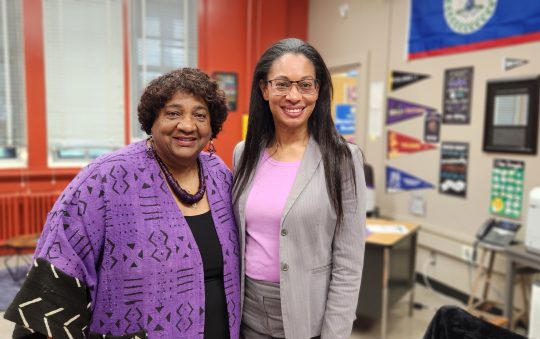
WASHINGTON — With California Sen. Barbara Boxer stepping down after 23 years in Congress, a number of Democrats are lining up for her spot.
Among the Democratic contenders who have been announced so far are California Attorney General Kamala Harris, Congresswoman Loretta Sanchez and mathematician Akinyeme Agbede.
A number of Republicans are also vying for the seat, including Rocky Chavez, a state assemblyman; Tom Del Beccaro, former chairman of the California Republican Party; John Estrada, a businessman who ran unsuccessfully for congress in 1994 and 1998; Mark Hardie, an attorney and author; Don Krampe, who ran for the Senate in 2012; Tom Palzer, a retired urban planner; and George Sundheim, who also once headed the California Republican Party.
Political experts say at this point in the race, Harris, the first woman and first person of color to hold her office, is the clear front-runner.
Robert Smith, a San Francisco State University professor and expert on African-American politics and Congress, is one who gives Harris the edge.
“The political establishments are united around Kamala Harris, and therefore she doesn’t have to do anything except not make any mistakes,” Smith said.
Michael Madrid, an expert on Latino voting trends and California state and local politics said a number of factors in the race favor Harris.
Geography, gender, race and status will be important aspects in this race, Madrid said. Harris is from San Francisco, and she has the support of the areas highly political residents. San Francisco and the surrounding Bay Area have high voter turnout and dense representation in California government, he pointed out.
“[One] advantage is that she’s a woman of color, which I would argue helps her reach beyond the geography into non-traditional constituencies, meaning people of color in southern California and the central valley,” he said.
Sen. Diane Feinstein and House of Representatives Minority Leader Nancy Pelosi have supported Harris’ past campaigns for attorney general. She is popular amongst white liberal voters and black political leadership alike.
Her strongest opponent is Sanchez, who is an experienced congresswoman in southern California who has the advantage of the Latino vote, which may spike in the coming election, Madrid said.
Historically, Latino voter turnout is low, but as the community grows, “the gap between the population density and political representation grows,” he said.
According to the Public Policy Institute of California, Latinos make up 38 percent of the state’s population, but only 17 percent of its voters.
“They’ll vote overwhelmingly for Sanchez but no one knows if it’ll be enough,” he said.
Sanchez remains lesser known to northern Californians, who are far outside her current constituent base, and likely to rally behind Harris as their Democratic nominee.
“Sanchez is not very well known in California in general but amongst African-Americans in particular,” Smith said, “So, this race is really Kamala’s to lose. Sanchez is not a credible opponent.”
Political analysts say despite the number of Republicans in the race, the contest is clearly between the Democratic candidates, of which Harris is in the lead.
“I can’t think of a Republican that can even contemplate giving her a serious race,” Smith said, “no Democrat either.”






